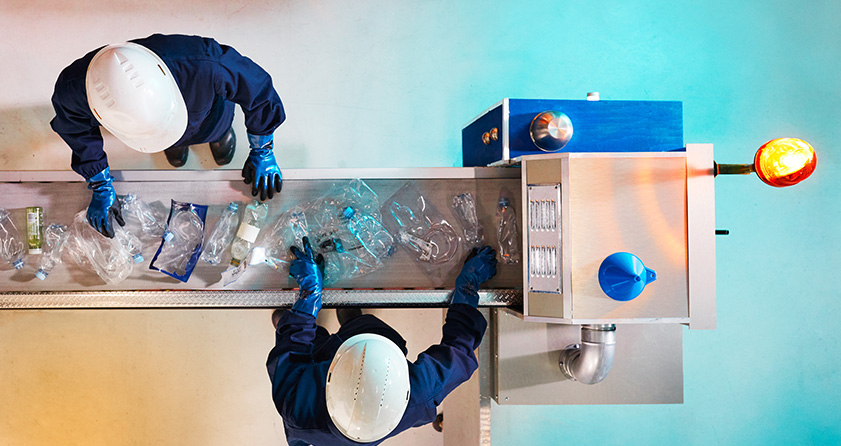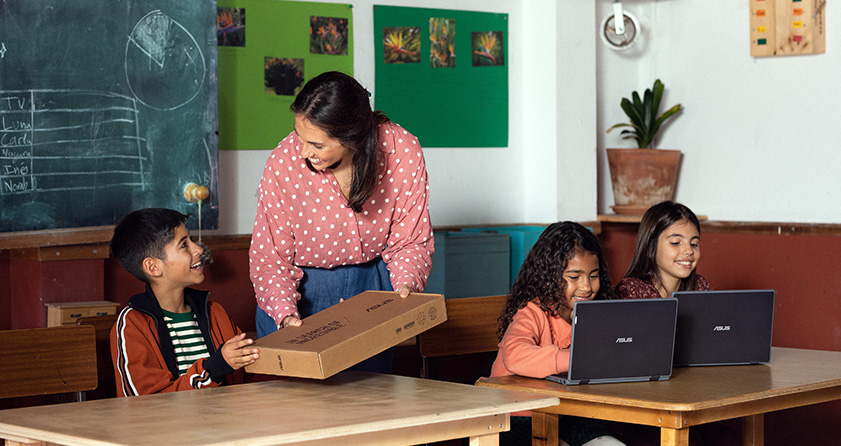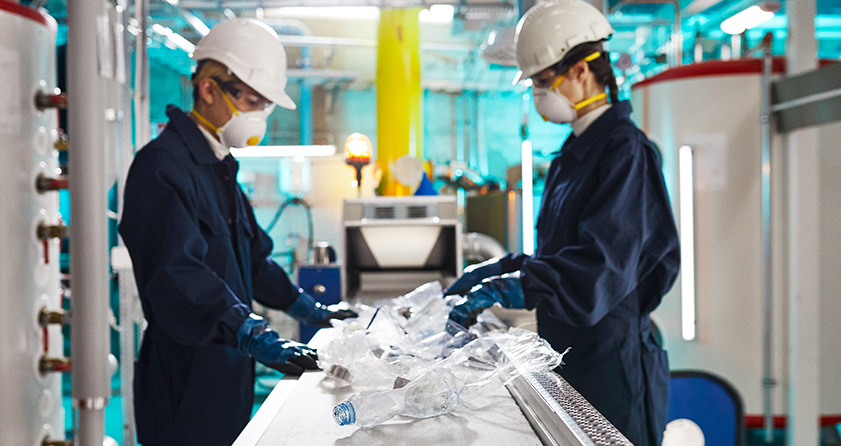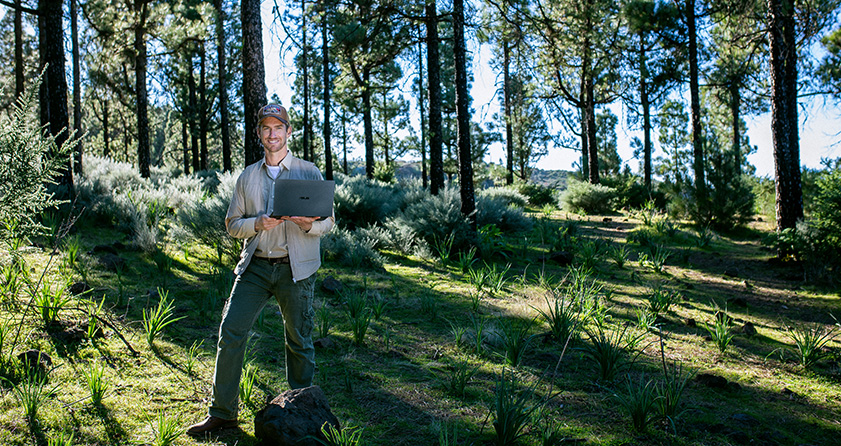Feature Story
2023/01/05
How ASUS Helps Sustain an Incredible, Greener Future
-
Copied to clipboard

Laptop manufacturers nowadays carry much more responsibility than just generating profit. ASUS takes its commitment to a sustainable, green future seriously. We apply environmentally-friendly practices at all levels of operations—from how we build our laptops, to your ASUS laptop ownership experience and what happens with it after you decide to replace it, as well as how our offices are built and managed, and how our employees behave.
Sustainability is a core part of who we are at ASUS. As Jonney Shih, Chairman of ASUS, has repeatedly stated: “We incorporate sustainable development goals into the corporate decision-making process to make positive contributions to society and the environment through practical action."
Read on to learn how ASUS aligns itself with the Sustainable Development Goals devised by the United Nations and contributes to helping sustain an incredible, greener future.
01 ASUS Sustainability Goals for 2025 and Beyond
02 What We’ve Done So Far
03 Use of Sustainable Materials in Our Laptops
04 International Green Product Certifications in ASUS Laptops
05 Ecofriendly Actions to Take When Shopping for an ASUS Laptop
01 ASUS Sustainability Goals for 2025 and Beyond
At ASUS, we go above and beyond to ensure a greener future for generations to come. We have set for ourselves four ambitious goals for 2025 and beyond that will help us achieve even more sustainable operations.
Climate Action
We recognize that how energy is generated and used is a large concern for the world. That’s why we are striving to use only renewable energy at our offices and operations centers. Starting with our head office in Taipei we are aiming to use 100% renewable energy by 2030 and, by 2035, achieve the same globally.
Our products also need to contribute to better energy usage. That’s why we aim to exceed the internationally-recognized, standard for energy efficiency — ENERGY STAR® — by at least 30% every year.
We are also conscious about carbon emissions in the manufacturing process, as well as decreasing the carbon intensity of our key suppliers by 30%.
Circular Economy
What our laptops are made of matters. We are working on greener processes at all stages of the product lifecycle. During the design, we aim to increase the use of environmentally friendly materials in our products and packaging by 100% before 2025.

We are also adopting modular design in our products, thanks to which we are able to reduce the wastage and make sure our products serve you for longer. Finally, we also pay attention to what happens after your ASUS laptop reaches the end of its life — we aim to recycle at least 20% of ASUS products globally.
Responsible Manufacturing
As much as we care about the environment, we also deeply care for the people involved in delivering the best laptops to you.
We are very selective with our suppliers and take action to implement labor rights management—in fact, we are a full member of Responsible Business Alliance (RBA) and require our key suppliers to complete RBA third-party audits.
We also ensure that we responsibly source our materials from qualified smelters. That includes providers of minerals like tantalum, tin, tungsten, and gold.
We are also working on strengthening information security throughout the whole supply chain. We will require 100% of our key suppliers to meet the highest information security standards by 2025.

Value Creation
What we make matters as much as how we make it. That's why we are committed to contributing to digital transformation and innovation globally. By 2025, we aim to increase our sustainable value creation by 100%.
Younger generations are also in our focus. We are training more than 1,000 students to increase their digital competency via cooperation with industrial and academic institutions and organizations.

02 What We’ve Done So Far
On our way to meeting our 2025 goals, we’ve already reached a few impressive milestones. We’ve reduced the environmental impact of our ASUS products, including the one you might already be holding in your hands. And, we are not done yet. Here’s what we’ve achieved so far:
- We’ve used over 1,500 tons of post-consumer recycled (PCR) plastics in our products since 2017
- In 2022, we used over 20,000 tons of recycled paper in our products
- We’ve covered 75% of the globe with our recycling services, resulting in over 40,000 tons of e-waste being recycled since 2019
- We’ve donated over 20,000 computers to more than 1,800 non-profits since 2008
03 Use of Sustainable Materials in Our Laptops
When it comes to the production of ASUS laptops, we are moving forward with increased use of recycled, environmentally friendly materials in key parts, like chassis covers, keyboard keycaps, speakers, peripherals, and adapters.
The plastic laptop parts in many ASUS laptops are made of post-consumer recycled plastic We are also working on integrating post-industrial recycled metal and ocean-bound plastic into our products.

But that's not where it ends. The box in which ASUS laptops arrive in your hands is also made of green materials. We use either recycled paper or source the material for packaging production from Forest Stewardship Council (FSC)-certified suppliers that apply responsible forestry practices.
And there’s more! The usefulness of the packaging doesn’t reach its expiration when you take the laptop out of the box—due to its innovative design, you can easily transform it into a laptop stand!
04 International Green Product Certifications in ASUS Laptops
When shopping for a greener, more environmentally friendly laptop, you should be on the lookout for ecolabels that ensure the sustainability of the product. At ASUS, our laptops have been awarded the world's leading ecolabels:
- EPEAT® is a leading global ecolabel covering technology products and services. EPEAT-registered products have a positive environmental and social impact across the entire product lifecycle, from the extraction of resources and manufacturing to assembly, use, and end of life.
- ENERGY STAR® is a globally recognized certificate for energy efficiency. Products that earn the ENERGY STAR® prevent greenhouse gas emissions by meeting strict energy efficiency requirements set by the U.S. Environmental Protection Agency.
- RoHS is a global regulation that protects the environment and public health, restricting hazardous substances in products.

05 ASUS Ecofriendly Actions to Take When Shopping for an ASUS Laptop
You can help us reach our sustainability goals and contribute to a sustainable future when buying and using ASUS laptops. How?
If you’re swapping your old laptop for a new one (regadless of the brand), make sure to reach out to us and find the ASUS recycling service providers in your area. Our laptop recycling program is available in 30 countries worldwide and includes drop-off, mail-back, trade-in, and pick-up services. To find the nearest ASUS recycling service provider, click here.
You can also contribute to the green future by choosing one of our Eco-Certified ASUS laptops. Find yourself the perfect Eco-Certified ASUS laptop here.
For businesses looking to make a sustainable choice, there is perhaps none better than the ExpertBook B9 OLED. It is the first all-metal ASUS laptop to employ a patented eco-conscious manufacturing process that helps reduce production materials by up to 29% and shortens manufacturing time by up to 75%. * The end result is a stronger laptop that maximizes energy efficiency and lowers carbon emissions in the manufacturing process, minimizing the ExpertBook B9 OLED’s overall impact on the environment.
Curious to learn more about ASUS's commitment to sustainability? Click the button below to visit our sustainability site, where you can read more about our contributions and view our sustainability report.
*Actual results may vary depending on model and manufacturing process.
Related Article
